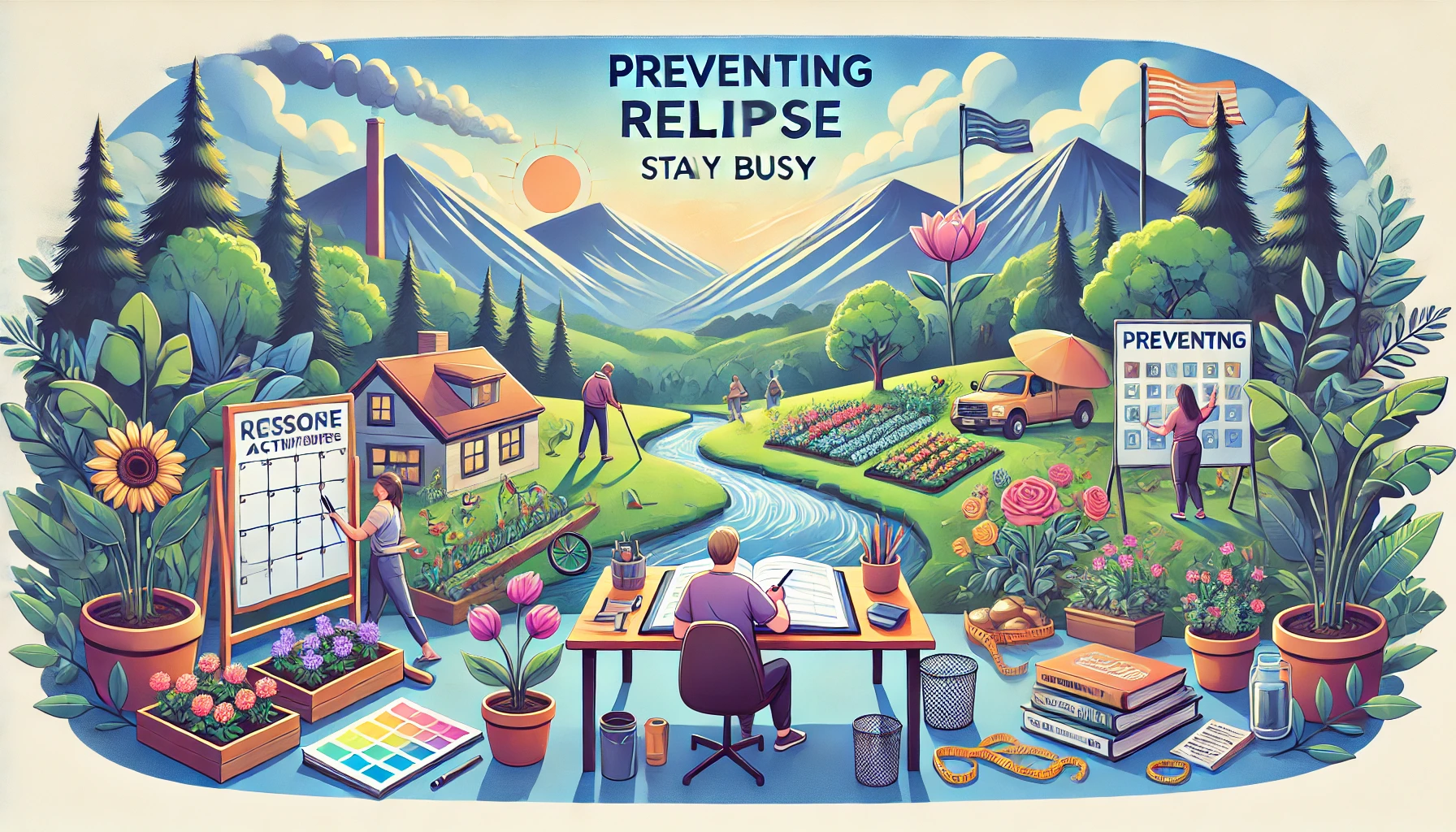Time management in recovery is super important. It helps a lot in beating addiction and leading a better life. Often, young people in recovery lack basic skills, such as time management. This is because they used to focus on finding substances.
Learning to manage one’s time well helps in the recovery journey. It lowers stress and makes us more productive. Using things like daily planners or apps can be very helpful. They make sure we keep to a routine and go to essential meetings or therapy. This helps build good habits and stay away from going back to bad ways.

Without good time management, people in recovery might get bored or feel lonely. This could push them to use substances again. Learning how to manage time can keep these bad feelings away. It helps them focus on work, school, or their home. Plus, it can make finding a job easier during their recovery.
Managing money well and making good social connections are also linked to time management. These skills help use time and money wisely. Good social skills can lead to better friendships that support staying clean. Also, keeping emotions in check is key to avoid going back to substance use. Meditating and other calming activities are important for this.
Using time well makes a big difference for those in recovery. It helps them feel more confident and ready to start new things. Planning, setting goals, and doing tasks smartly are all part of good time management. It’s a key part of building a bright future after addiction.
Understanding Time Management and Its Role in Recovery
Time management is key in the journey to recovery. It helps you stay sober and live a productive life. By managing time well, you turn free time into active moments. This is key to avoiding going back to old habits. We will go into what time management means, why it’s important, and how to make it work in your recovery.
What is Time Management?
Time management is all about making the most of your time. It helps you do more work better and faster. In recovery, it’s vital to avoid time where you’re not doing something purposeful. This can help prevent cravings and relapses. Learning to manage your time effectively is a valuable skill. It makes your life more organized and aims towards a goal.
The Importance of Time Management
Time management is crucial in recovery. It structures your day, lowers stress, and helps you keep a balanced life. Renaissance Recovery Center notes that setting deadlines and avoiding distractions are important. Firstly, start early and do the most important things first. This boosts focus and makes you feel more accomplished.
Time Management Techniques
Many strategies are there to help you manage time well. For example, the Eisenhower matrix prioritizes tasks by importance and urgency. The Pomodoro method has you work in blocks with breaks. This boosts how much you get done and cuts stress. Time blocking means you set times for different tasks. This helps make sure you deal with all aspects of recovery. These strategies, from Live Well and Fully, can be adjusted to fit your situation.
For more on how time management can help in recovery, check out Clearfork Academy.
Reduction of Stress Levels
Doing what needs to be done on time helps reduce stress. It makes our tasks feel more doable and lessens the stress of feeling overwhelmed. This is important in avoiding situations that can lead to harmful habits like substance abuse or worsening physical health.

Exercising regularly is a great way to keep stress at bay. It lets out endorphins that are chemicals in our brain. These chemicals help lower stress and make us feel better. Creative activities like art or music also help handle feelings and stress in recovery.
Learning to use mindfulness and meditation can make a big difference. Even a short session every day can lower your stress and make you feel calmer. Being thankful each day also plays a big part in reducing stress and boosting your mood.
Having people to support you is key to dealing with stress and staying away from bad habits in recovery. They can provide comfort when you are going through hard times. Balancing work and personal life is also crucial. This makes your journey to recovery smoother and stress-free.
Boosting Productivity
Being good at time management is key to getting more done and being less stressed. With the right strategies, people can do better at work and be happier in life.
Setting Priorities
Choosing what’s most important helps you work better. Focus on high-impact tasks first with the MIT method. Don’t be afraid to turn down tasks to lower stress. By looking at the big picture, you can keep going and not get bogged down.
Using Time Blocking Techniques
Time blocking can help you be more productive. Set times for tasks to avoid switching between them. This boosts focus and gets things done on time. It’s smart to work with your body’s natural energy ups and downs.

Avoiding Procrastination
Putting off tasks leads to more stress and lower quality work closer to deadlines. Give yourself fake deadlines to stay on track. This helps you get important jobs done sooner. And as you keep at it, you’ll see you’re getting more done.
Enhancing Focus and Concentration
Effective time management is key in boosting focus. It offers a clear layout for daily activities and goals. By planning tasks and breaking them down, you can make them easier. This leads to better focus and handles important tasks well.

Emailing can hurt your focus. Replying to an email for 15 minutes can make your brain need 15 minutes to reset. Checking emails only three times each day can help you focus better and cut down on distractions.
Multitasking can make you more stressed and less efficient. Doing one task at a time can make you more focused and productive. Taking short breaks for a walk or deep breathing can refresh your mind and boost your focus.
Doing tasks when you have the most energy can make you more productive. Knowing when you work the best helps you focus on important tasks then. Also, making a clear schedule and figuring out what tasks are top priority can make you better at managing time.
Getting rid of digital distractions, like phones and TVs, can help you think more deeply. Being in nature and doing brain training can also improve your focus and how productive you are.
Adding exercise to your daily life can boost your focus. A study with fifth-graders found that just four weeks of daily physical activity made them more attentive. Doing yoga, deep breathing, and mindfulness can also help you focus and remember better.
Overall, getting better at managing your time is crucial for staying focused. Making a clear routine that can change if needed helps you keep your attention and grow personally.
Building Self-Confidence
Building self-confidence is key in recovery. By managing time well, people can meet their goals. This makes them feel more reliable and better about themselves.

Overcoming Anxiety
Getting over anxiety is a big step in recovery. Forgiving oneself can lower anxiety and depression. Managing time makes daily life more certain.
This makes it easier to battle anxiety by using techniques like mindfulness. You can also try methods like CBT to change negative thinking.
Avoiding Multitasking
Doing one thing at a time helps reach bigger goals. Studies show focus and productivity improve this way. This boosts how you see yourself.
By not multitasking, time is better spent on each task. This lifts the quality of your work.
Creating Realistic Goals
Setting goals you can reach is crucial in recovery. Small steps you choose to take can build confidence. Knowing what you’re good at helps set smart goals.
This is vital for feeling good about yourself as you recover. Eating well, exercising, and being kind to yourself are also key. Stick to these and watch your confidence grow.
Preventing Relapse by Staying Busy
Staying busy can help prevent a relapse. Having a regular routine and staying active are key. They help you stay out of trouble that could cause a relapse. It’s known that a tough time can last up to two years when you’re recovering. So, it’s important to stay active and focused during this time.

Doing projects around the house is a good way to stay busy. There’s always something that needs fixing or improving in a home. You can also help out at community events like The Great American Cleanup. These tasks give you a sense of pride and help you connect with others.
Involving yourself in group meetings in places like Willingway can be useful. They offer support and help you make new friends who are also in recovery. Working out regularly is important too. It keeps your body and mind healthy.
Writing in a journal or sharing your story online can be therapeutic. These actions help you understand yourself better and connect with others. Being kind to people can also make you feel happier and less sad about your recovery.
It’s also key to find a balance between doing things and taking time for yourself. Having a routine is good, but taking breaks from screens can be helpful too. Making a plan to avoid a relapse is very important. This full approach to staying busy helps you stay strong against using again.
Achieving Financial Stability
Getting financially stable in recovery is key. This is because addiction can cause big money problems. It’s crucial to manage money well and make a plan for your recovery costs. This way, you can avoid going back to old habits and handle stress better.

Having money troubles can lead to going back to bad habits. So, it’s important to be smart with your money. Make a budget, limit access to quick cash, and save up. A good budget makes sure you can pay for what you need and save for the future without debt.
Knowing the difference between what you want and what you really need helps stop you from spending money too quickly. Look for cheaper options and focus on important costs like your home and food. This reduces the risk of trading one addiction for another, like gambling or shopping. So, it’s really important to keep track of your money closely.
Learning about money can help a lot in recovery. Banks, support groups, and experts can offer useful info. They can help you talk to your creditors or make a budget that works for you.
Studies show that many people in recovery struggle with old money problems. But, making a budget helps a lot. It means you’re likely to spend only what you planned. Also, keeping close watch on your spending can cut your costs by a fifth in the first month.
In recovery, it’s good to save money for rainy days. A financial expert can also offer tips that suit your situation. They help you manage your money better.
Time Management in Recovery
Time management is key in the recovery process. It helps guide and focus you as you work towards wellness.
Creating a Daily Schedule
Having a daily schedule is vital for managing your time during recovery. It lets you organize activities and make sure your days are productive. Getting started early boosts what you can do. It’s also important to know what tasks are most important and when they need to be done, to avoid stress and keep going strong.
Incorporating Healthy Habits
Adding healthy habits to your daily life is a must for feeling good all around. Make time for exercise, eating well, and getting enough sleep every day. Doing these things regularly is crucial for your recovery. They help your mind and body stay strong, making it easier to avoid going back to old habits.

Monitoring Progress
Keeping track of how you’re doing every day is also important. Check your to-do lists and schedules often to stay on track. The Pomodoro Method can keep you focused and productive. It breaks work into short, manageable parts. This way, you can keep making progress and meeting your goals.
Using these time management tips helps build a healing environment for recovery. It paves the way for lasting success.
Conclusion
In conclusion, managing time well when you’re getting better from something is great. It helps lower stress and makes you more efficient. This way you can keep your money safe and avoid going back to bad habits.
Using time wisely is key in healing. Having a set schedule helps you stay on track and learn important life skills. Recovery houses that are licensed provide structure and help from pros. This helps people stay sober for a long time.
This article has shown why time management is important in getting better. It teaches people to take their lives back. This leads to a community that supports healing. It also helps create habits that stay with you, leading to a better, lasting life.
FAQ
What is time management?
Time management is all about scheduling tasks to do more in less time. It’s making the most of the time we have.
Why is time management crucial during the recovery process?
Good time management is key in recovery. It helps balance health, work, and growth needs. This balance supports health and steady progress.
How does effective time management reduce stress levels in recovery?
It lowers stress by giving a clear way to finish tasks. With set goals and breaks, you feel less stress. Mental health stays strong.
What are some popular time management techniques?
Some common methods include the Eisenhower matrix, Pomodoro, and time blocking. These tools help us get organized and work smarter.
How does time management boost productivity in recovery?
It makes us set goals, use time wisely, and beat procrastination. Time management ensures we focus on what’s most important.
What role does setting priorities play in time management during recovery?
Knowing what’s most important helps us be more productive. We focus on key tasks. This way, we reach our goals more efficiently.
Can avoiding multitasking enhance focus and concentration?
Yes, focusing on one task at a time can help us do more. It leads to better results and a feeling of control over our work.
How does time management help in building self-confidence during recovery?
It boosts our confidence by helping us meet our goals. This makes us seem more reliable. Achievements build a positive self-image.
What are some ways to prevent relapse through effective time management?
To avoid going back, keep to a schedule and do things that help recovery. Staying busy helps ward off bad habits.
How does time management contribute to achieving financial stability?
It helps by setting time for financial matters and career growth. This leads to a better money situation and careful spending.
What are the benefits of creating a daily schedule during recovery?
A daily plan helps us use time well and with purpose. It also includes healthy routines like exercise and eating well.
How can individuals monitor their progress in time management?
Check how you use your time often. Change plans if needed. Learning from what works helps keep us on track for success.

More Posts
Hectic Work Schedule And Mental Stress
How to study smart with effective strategies
Finding the best way to study can make all the difference to school and college performances. Effective study techniques will help you keep your attention to your studies and also get you good...
9 Innovative Ways of Working to Boost Productivity
Productivity is more than just doing tasks. It's about how well and efficiently employees help reach company goals. This makes the company stronger and more profitable. Finding new ways to make employees more...
Weekly Digest for Effective People #7
May 21 to May 27